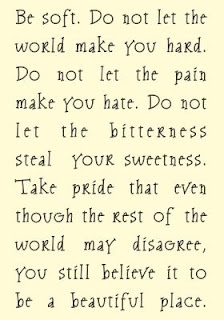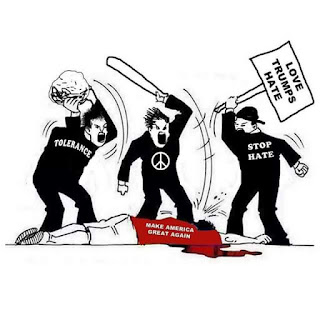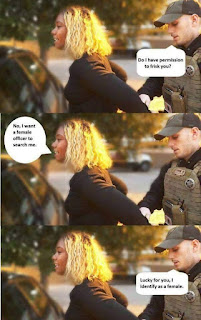#Taiwan suspends oil exports to #NorthKorea, imports of clothing https://t.co/yytMMSWxYu via @STForeignDesk— GlobalAwareness101 (@Mononoke__Hime) September 20, 2017
Straits Times, Asia
written by Reuters staff
Wednesday September 20, 2017
TAIPEI - Taiwan has suspended refined oil and LNG exports to North Korea, as well as clothing and textile imports, to comply with United Nations resolutions, a largely symbolic move by the island to show it is a responsible member of the international community.
Self-ruled Taiwan is not a member of the United Nations, due to Beijing's position that it is simply a Chinese province and so not able to have its own official diplomatic ties with anyone.
But proudly democratic Taiwan likes to show that it follows international norms, despite its lack of UN membership.
On Sept 11, the UN Security Council unanimously stepped up sanctions against North Korea over its sixth and most powerful nuclear test on Sept 3, imposing a ban on the isolated nation's textile exports and capping imports of crude oil.
To complement the UN measures, Taiwan said it would suspend liquefied natural gas, crude oil, and refined oil product exports to North Korea with effect from Tuesday (Sept 19), the Economics Ministry said in a statement.
Taiwan will suspend clothing and related textile good imports from North Korea, it added, adding that written pacts made before Sept 11 would prevail for imports until Dec 10, so long as a special permit is obtained from the trade office.
Taiwan's measure is aimed at "denouncing North Korea's recent successive nuclear tests and actions that jeopardise regional security", the Economics Ministry said.
Taiwan and North Korea have only a minuscule trading relationship. Taiwan says its exports to North Korea in the first six months of this year were worth just US$36,575 (S$49,273), an annual decrease of more than 90 per cent.
Last week, North Korea fired a missile that flew over Japan's northern Hokkaido region far out into the Pacific Ocean, shortly after its biggest nuclear test this month.
😁 said the bully who threatened world w/nuclear bomb👉 Kim Jong Un: 'Deranged' Trump will pay dearly' for threat https://t.co/mrnuXdPXUO #HNN— GlobalAwareness101 (@Mononoke__Hime) September 21, 2017
China banks reportedly to halt business with North Korea as South Korea sends $8 millionhttps://t.co/p2uMp5at6r— GlobalAwareness101 (@Mononoke__Hime) September 21, 2017
Fox News, USA
written by Katherine Lam
Thursday September 21, 2017
North Korea learned this week Chinese banks will no longer do business with the Hermit Kingdom, in the strongest sign yet pressure from the Trump administration to choke off funding to the rogue nation is working.
Chinese banks received a document Monday stating they should halt financial services and loans to new and existing North Korean customers as a result of strict U.N. sanctions passed earlier this month, a source told Reuters on Thursday.
“Our bank is fulfilling our international obligations and implementing United Nations sanctions against North Korea. As such, we refuse to handle any individual loans connected to North Korea,” the document reportedly said.
The move comes after repeated calls from the Trump administration for China to help cut the flow of money to Kim Jong Un's dictatorship in an effort to cripple the regime’s missile and nuclear programs. China and Russia agreed to the recent UN sanctions against North Korea, which included a ban on natural gas liquids and condensates. But Trump has explicitly called out China on Twitter, writing he’s “very disappointed” in the country and accusing them of “doing NOTHING for us with North Korea.”
China, North Korea's closest ally, has urged a diplomatic solution to solve the current crisis. “War Stories” host Lt. Col. Oliver North told Fox News on Monday, however, he believes China will only truly try to tame its volatile neighbor if it believes Trump could take military action.
“They [China] don’t think we are really sincere about military action. It’s going to take action, not words," North said.
China's surprising instructions to banks this week, however, were at least partially undermined when South Korea on Thursday approved $8 million in supposed humanitarian aid to North Korea.
Some South Korean officials fear the new aid will send a mixed signal to international leaders. Son Kim-ju, a lawmaker and spokesman of the opposition People’s Party, told The Associated Press the announcement is “badly timed.”
"The international community is strengthening sanctions and pressure against North Korea and even [President Moon Jae-in] is in the United States to strengthen international coordination against the North Korean problem," Son said. "If our government contradicts itself and beats to a different beat, it won't be able to gain the approval of its own people, let alone other countries."
A set date on when the money will begin flowing into North Korea has not been decided.
Moon previously said humanitarian aid and political issues should be handled separately. Seoul stopped the aid in January 2016 after Pyongyang conducted its fourth nuclear test. But after meeting with ministries and civilian experts, Moon decided to resume aid to help North Korean children and pregnant woman, the Unification Ministry said. The money is intended to support programs run by U.N. Children’s Fund and U.N. Food Program.
The ministry added the assistance doesn't include cash and there's "realistically no possibility" the North could use it to support its military. About 18 million of the 25 million people who live in North Korea experience food shortages with a high child and mortality rates, according to the U.N.
Moon also said Thursday he doesn't seek to collapse Kim's regime and is ready to help the country if it seeks peace, Yonhap News Agency reported. The South Korean leader also urged North Korea to give up its nuclear program.
There's been no shortage of animosity between the U.S. and North Korea during the U.N. General Assembly this week, with attacks coming from both sides. Trump, in his U.N. speech, mocked Kim by calling him “rocket man,” who’s on “a suicide mission for himself and for his regime.”
"North Korea's reckless pursuit of nuclear weapons and ballistic missiles threatens the entire world with unthinkable loss of human life,” Trump said Tuesday.
North Korea’s Foreign Minister Ri Yong Ho fired back Wednesday, telling reporters the president’s threats were “the sound of a dog barking.”
“There is a saying that goes: ‘Even when dogs bark, the parade goes on,’” Ri said. "It would be a dog's dream if [Trump] intended to scare us with the sound of a dog barking.”
Ri then joked he felt “sorry” for Trump’s aides when asked about the “rocket man” comment.
President Trump signed an executive order Thursday targeting North Korea’s trading partners, calling it a “powerful” new tool aimed at isolating and denuclearizing the regime.
Can Japan claw back the ¥1.4 trillion it sent to North Korea? 😦https://t.co/1cAGuRHA9v via @SCMP_News— GlobalAwareness101 (@Mononoke__Hime) September 24, 2017
SCMP News, Asia
written by Julian Ryall
Sunday September 24, 2014
A campaign that would effectively bankrupt Chosen Soren, the association of North Korean residents of Japan and a major source of funds for Pyongyang, is the latest sign of Japan’s hardening stance towards its wayward neighbour.
With tensions ratcheting up following two missile tests in which Pyongyang sent rockets over Japanese territory, a prominent rights campaigner has upped the stakes in a decade-long battle to retrieve ¥1.4 trillion (HK$97.76 billion) in government funds used to bail out sixteen pro-Pyongyang credit unions that went bankrupt when Japan’s bubble economy burst in the 1990s.
The campaigner, Ken Kato, and elements of the Japanese government accuse the credit unions, which had close links to Chosen Soren and were used to send money to North Korea, of making reckless loans in the knowledge that Japanese taxpayers would eventually be forced to foot the bill when they failed.
Chonsen Soren has been ordered by more than one court to repay at least some of the funds used to bail out the credit agencies, but it refuses to do so.
Kato’s latest plan for forcing its hand is to petition the Japanese government to have the organisation declared bankrupt, seize its assets and auction them off to recoup the amount it owes. His plan may stand a greater than usual chance of success given the present state of Tokyo-Pyongyang relations.
“The credit unions were controlled by Chosen Soren and the reason they collapsed was in part due to the end of Japan’s economic boom, but also because they had been making massive donations to the North Korean regime and Chosen Soren had been misappropriating more funds,” said Kato, a director of Human Rights in Asia and a member of the International Coalition to Stop Crimes Against Humanity in North Korea. He said at least 25 credit union officials had been arrested in connection with fraudulent transactions.
“In short, every Japanese person and every foreign resident here each paid around US$100 to cover the cost of the failure of the credit unions, and that money went to North Korea, with a large portion being used to fund their nuclear weapon and missile programmes,” Kato told This Week in Asia.
“It was completely absurd.”
Seiji Maehara, presently the head of the opposition Democratic Party, questioned the government on the matter as recently as 2015 and received confirmation that billions of yen had been provided to bankrupt credit unions – including the 16 linked to North Korea – through the Deposit Corporation of Japan (DICJ).
He received a response from Prime Minister Shinzo Abe, who said: “Unlike the collapses of other credit unions, the problem with the failures of these companies was that they continued to lend more and more money, fully aware that they were going to collapse and that the DICJ or public funds would be used to pay for it. As a result, they made huge losses.
“So this is not a question of a failure of investments but of illicit lending by loan providers and debtors conspiring together in the knowledge that the money would be sent to North Korea.”
A Japanese court in 2007 ordered Chosen Soren to pay back ¥62.7 billion (HK$4.38 billion) – a small fraction of the total provided by the government because it has proven close to impossible to trace the money that was invested – or sent abroad – before the unions failed.
In the latest effort to force the organisation to repay its debts, the Tokyo District Court on August 2 ordered Chosen Soren to pay ¥91 billion (HK$6.35 billion), including interest. According to the Sankei newspaper, officials of Chosen Soren did not bother to turn up to the hearing and failed to provide any documentation.
“Enough is enough,” said Kato. “They took money from Japanese taxpayers and they sent it to Pyongyang to pay for missiles and nuclear weapons that are now pointed towards Japan.
“I believe that Japan has been patient and more than fair and they are laughing at us because we do nothing.
“I also believe that because Japan is indirectly responsible for the weapons that North Korea is threatening the rest of the world with, that it is our responsibility to do everything we can to repair the damage that has been done,” he said. “And I imagine that, given North Korea’s recent actions, the rest of the world will support us.”
Chosen Soren is headquartered in a large and high-walled compound in Tokyo’s Chiyoda ward. The compound came close to being seized in 2015, when the organisation was unable to pay back taxes.
It managed to avoid that fate when a small property firm in Japan called Green Forest acquired the site after allegedly receiving a large transfer of funds – around ¥1 billion (HK$63.97 million) – from Hong Kong-based Dongnam Shipping Agency.
Chosen Soren also operates a newspaper, a news agency, an insurance company, a travel agency, a publishing company, dozens of schools and a university.
Kato and his supporters believe that depriving Chosen Soren of the assets, buildings and land that it owns in Japan will help to curtail Pyongyang’s overseas earnings. “If the court declares Chosen Soren bankrupt, then its officials will be forced to answer questions from the bankruptcy administrators or trustees appointed by the court,” Kato said. “The administrators will certainly question them about dubious financial transactions, such as the ¥1 billion sent from Hong Kong.
Please click HERE to continue reading this entire intriguing article...
"Congratulations Mister president. You started a fucking nuclear war"— exausto (@1Tompessoa) September 20, 2017
huh? how did he start a nuclear war WHEN Kim Jong-un MADE THE INITIAL THREATS?! initial means START. I want a strong back bone DEFENDING US!— GlobalAwareness101 (@Mononoke__Hime) September 20, 2017
Sure Pak has nukes. But Pakistan is not making threats of destruction. Nor is Pakistan aggressively firing missiles to signal intentions.— GlobalAwareness101 (@Mononoke__Hime) September 19, 2017
Here's your chance Lefties to defend him while he massacres sea life 👉 North Korea may test hydrogen bomb in Pacific https://t.co/9s5UWBhY1H— GlobalAwareness101 (@Mononoke__Hime) September 22, 2017
The United States is considering, in addition to other options, stopping all trade with any country doing business with North Korea.— Donald J. Trump (@realDonaldTrump) September 3, 2017
One line sanctions executive order: If you do any business with N. Korea, you cannot do any business with the United States. Full stop.— Mark Dubowitz (@mdubowitz) September 3, 2017
North Korea says it has developed advanced hydrogen bomb ready for ICBM https://t.co/7XOZgjNTcL it would be intercepted in seconds, Kim dead— GlobalAwareness101 (@Mononoke__Hime) September 3, 2017





































No comments:
Post a Comment